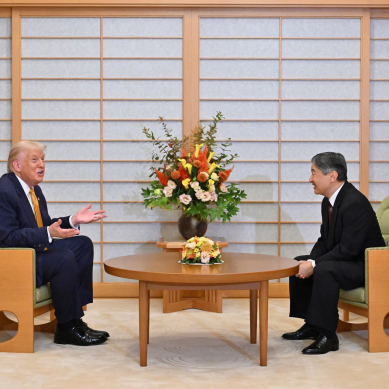Ex-Ambazonian separatist: I fought to close schools in Cameroon; now I teach to open people’s minds
The Ambazonian rebel group believed that destroying schools would weaken the government’s control over the region, a strategy that left a deep scar on the educational landscape. Armed groups enforced boycotts, burned classrooms and killed teachers who defied their orders. Nearly 488,000 children in the affected regions were out of school in 2024, according to UNICEF.
Taylor Swift tsunami of sports bets yielded tonnes of dollars, now there’s a rethink in betting business
Taylor Swift had been mainstreamed in the multibillion-dollar sports betting industry, was mentioned on betting podcasts, integrated into sportsbook social media promotions, and inspired prop bets on which millions of dollars have since been wagered worldwide.
How clustering knowledge systems into monoliths called faculties fosters intellectual imperialism in Uganda, jargonises academia
In the context of Uganda, universities remain, as in the past, the main knowledge centres where knowledge is organised, authorised and governed. Here, our universities have continued to organise, authorise and govern knowledge within units or pockets of knowledge called disciplines within which the knowledge workers specialise in small bits of knowledge within each discipline.
Immoral consistency: Why calls by West to sideline Afghan cricket team reek of sports colonialism
What began as a boycott based on the International Cricket Council’s requirement that any nation with Test status must have an active women’s team has morphed into a catch-all protest against the numerous limitations placed on women and girls in the Islamic Emirate.
How and why Benin’s Voodoo Festival is gaining popularity as Africa’s mecca of divine spirits, attracting foreigners and adherents
The festival gained popularity over the years from within and outside Africa, organisers say, and attracts thousands of locals and foreigners who flock to the Atlantic coast town to experience one of the world’s oldest religions.
There are fears Trump’s executive order that repurposes an existing agency is designed to shield super-rich from public scrutiny
A former USDS employee called the repurposing of the Digital Service into DOGE an “A+ bureaucratic jiujitsu move.” It will give Musk and his associates access to unclassified data in every government agency.
Beatification of Congolese civil servant murdered for fighting corruption picks up, inspires generation
The Rev Francesco Tedeschi, an Italian priest who is spearheading the beatification cause as the postulator, said the Vatican decree of martyrdom indeed recognizes Kositi died out of hatred for the faith, because his decision to not accept the spoiled food was profoundly inspired by the Gospel.
Decolonising intellectualism: Why Uganda’s knowledge systems need to be weaned of intellectual imperialism
In the context of Uganda, universities remain, as in the past, the main knowledge centres where knowledge is organised, authorised and governed. Here, our universities have continued to organise, authorise and govern knowledge within units or packets of knowledge called disciplines within which the knowledge workers specialise in small bits of knowledge within each discipline.
Rising gaps in relationships: Why men prefer younger partners and women switch to younger men when they hit 60 years
For women, a similar but less strong effect was observed after the age of 25 years. On average, for every 10 years of age, the preferred age difference at the beginning of a new relationship between a woman and her partner rises by about one additional year.
Smartphones on cusp of becoming ‘old news’ as Big Tech develops easy-to-use smart glasses
Facebook chief Mark Zuckerberg thinks that within 10 years, smart glasses will overtake smartphones in both popularity and usefulness. By the time we hit the 2030s, he predicts people will be keeping their phones tucked away more than they’re using them.















